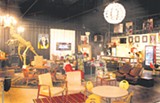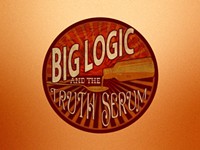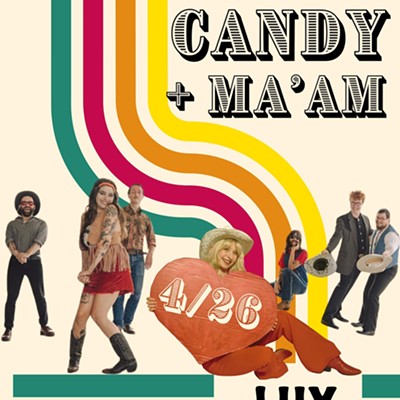
[
{
"name": "500x250 Ad",
"insertPoint": "5",
"component": "15667920",
"parentWrapperClass": "",
"requiredCountToDisplay": "1"
}
]
Even as record stores around the country dropped like flies, The Record Archive has kept it spinning for 40 years
The Record Archive is a bonafide icon; a Rochester institution. It's the go-to store for the hip, the aware, anybody, and everybody. And as multi-faceted as its customers are, so too is the business savvy credited with the store's survival. The Record Archive has bucked trends — initiated a few of its own — and has ultimately endured the fickle retail world for lo, these last 40 years.
The store — now located at 33 1/3 Rockwood Street — is 13,000-square feet jam-packed with new and used CDs, DVDs, toys, music ephemera, novelties, books, posters, housewares, audio equipment, T-shirts, vintage clothing and furniture, and books. Oh, and there's a quarter-million records as well as more than 60,000 45s. Where else can you score a Louis Prima LP, a leather jacket, and a whoopee cushion at once?
The building houses two stages in place for national, international, and local bands to do in-store performances. And it doesn't stop there: the walls serve as an art gallery. The Record Archive is, as its legendary jingle jangles, "The place to go."
But in order to fully appreciate The Record Archive, its longevity, impact, and success, you have to look at its founder: Richard Storms, a character who describes himself simply as "a male Caucasian closing in on 70."
"I've always had a toe in the music business since I was a teenager," Storms says. "I've always loved being around it. And in recent years I've loved doing it. Record Archive was just ... myself. I'm in the latter stages of my career; I'm a father with a grown child and a wife. I'm a person who likes — actually requires — information. I like to acquire information, digest it; analyze it; use it. I like to speculate on the future. I'm a trend-identifier; I anticipate things."
It all started with Rochester rock 'n' roll. "A long time ago I got into the music business as an artist making band flyers and band logos," Storms says. His first piece was for a local Beatles cover band called The Group Limited, which came to a lot of notoriety in the region.
Storms' involvement with the band soon escalated: "I did graphics for them, started handling equipment for them, then doorman, money-counter. That was my first taste, standing next to the stage. I started doing lights for bands, road managed. I started promoting concerts. I was in with kind of an avant-garde crowd here."
Storms moved to San Francisco in 1967, crediting a cover of Life Magazine. "It was the summer of love, man," he explains. "I was 20 years old."
Once in the Bay Area, Storms got a gig with psychedelic jam band Quicksilver Messenger Service, and lived in a tiny little room over the band's practice space in the Marin County heliport. Bands and musicians like The Electric Flag, Harvey Mandel, and Gale Garnett rehearsed there as well.
Then Storms saw the light — a light show at the Straight Theater called Black Shit Puppy Farm. "I learned liquid projection techniques from them," he says. "I brought it back to Rochester and started my own light show called Sam Patch Memorial Lights."
Storms credits the failed daredevil for the Flower City's trepidation.
"Sam Patch is a local hero that should be more of a hero," he says. "I think Sam Patch the risk-taker, that episode found its way into Rochester's DNA regarding risk-taking, and Rochester as a generality, has been adverse to risk-taking ever since Sam Patch goofed."
However, Storms is not personally averse to taking a chance.
"I got into going to household sales and garage sales," he says, "because, first of all, I began furnishing my first apartment. Then I started collecting things, including records — 78s, all kinds of records — really with my focus being jazz. I had accumulated a lot of records including stuff I didn't really need." Storms had a jazz program on WVOR in the early-to-mid-1970's which drove his record collecting; he needed material for the show.
"I started selling antiques in a formal way," he says. "I had a booth at a flea market. One day, I put a couple of boxes of records on the floor in front of the booth and people just swarmed them. I had an "A-Ha!" moment. It occurred to me that perhaps I should be doing this."
Storms opened up the Record Archive booth on September 14, 1975, at the Super Flea across from South Town Plaza.
"It was just a mind blowing day," he says. "We sold $1000 in records that day." Storms was thrilled with the trend, though he hadn't predicted its magnitude.
Six months later, Storms was out of the flea market and in the Village Green Bookstore's basement on Monroe Avenue. He stayed there two years before buying a building on Mt. Hope in 1977. It truly was a record archive.
"I developed it into a multi-level store with different departments for new records, for used records, and exotic records," Storms says.
There were other locations on Monroe Avenue and East Avenue that preceded the locale at 33 1/3 Rockwood Street. The store moved into its current location in 2009.
Though the Record Archive of today is still considered a record store, the introduction of gifts and novelty items — not all necessarily music related — has broadened its customer base ... and serendipitously saved its life.
"It was 1984," Storms says, "and a friend who had a record store in Florida told me that, at her store, they had postcards and small gifts to keep the mate of the primary record buyer occupied while the primary shopper was shopping. The gifts were there as a diversion."
Though Storms liked the idea of diversifying and venturing outside the record purveying bailiwick, he didn't buy its impetus: the old cliché being that men were the primary record buyers.
"That cliché, it's bullshit," he says. "Having a female partner who has focused on bringing women into the store ... I tell you my female customers are absolutely great and a driving part of my business."
Alayna Alderman is The Record Archive's vice president and Storms' partner in crime for 30 years. She seconds Storms' theory on female shoppers.
"Clearly they are the decision makers in all aspects of a person's life," she says. "Admittedly or not. Believe what you want, but then there's the reality."
Those stores that fall into that cliché risk becoming obsolete.
"That's something other record stores don't get," Storms says. "Record stores, especially the smaller ones, are boys' clubs."
The store's day-to-day is the reality where Alderman is yin to Storms' yang, the snap and crackle to his pop. It has been so for the last 30 years.
"Alayna really happened in an organic way," Storms says. "It was 1985 and her sister was my office manager who decided to leave and start her own very successful business. And I was like 'Omigod! Omigod! I'm a person who needs an office manager.' Alayna was 19. Her sister brought her in and said, 'Here.'"
"I was working at Wegmans at the time," Alderman adds. "And I was considering moving to Florida. I never interviewed for the job. There was a desk with a rotary phone and just papers and crap everywhere."
Storms calls Alderman a "force of nature. She gets things done. She has been a very successful, positive influence and central figure in Record Archive."
The admiration is mutual. Alderman lauds Storms' insight which she says keeps the business one step ahead the bubble.
"His talent ... one of his attributes is he is a visionary," she says. "All those years of collecting records, gathering dust in the back room of the Mount Hope store, I kept thinking 'My god, this place is going to burn down. But he knew there was going to be a resurgence. He just knew. The same thing with CDs and DVDs. He's good at stepping back and having a global perspective. Plus he's so well read, he's reading The Times, the trades. And I also do that from a lifestyle-cultural standpoint. Somehow it all works."
Forty years in business and Storms and Alderman have experienced ups and downs. One particularly dark down period Pearl Harbor'd them — and the whole industry — big time: Napster. Dark times were ahead.
"That thing that made record stores around the world drop like flies," Storms says. "Downloading. 1999 — for the party that was the record business, you can put the date of its demise right there. Imagine if you will where McDonalds would be if, 15 years ago they found a way to download hamburgers for free."
"There were many days when we didn't think we were going to survive," Alderman says. "He and I did what we had to do in order to keep things going."
Though the record store industry was wrapped up in the spiraling chaos, The Record Archive survived though with innovation and tenacity.
"You had to have something that was different, desirable," Storms says. "The gift part as well as the used was definitely something that was instrumental in our salvation." Used merchandise — "Salvage, really," as Storms puts it — particularly helped through the lean uncertain early years of downloading. And it helps with the business's robust pace today. According to Storms, in terms of sales, new and used music and movies make up about 85 percent. There's a cohesiveness to The Record Archive that is both savvy and impish fun.
"We still keep it in the spirit of entertainment," says Storms, the man who has appeared in TV commercials dressed as a dancing record.
"We've constantly had to reinvent ourselves," Alderman says. "Yes we have the music fan, and we'll always be based in music. But it's not the same business it used to be. Music has been competing for peoples' entertainment dollar for a while now. Music always seems to get pushed down, there's always something sexier and exciting taking those dollars away. A lot of that is because the industry has devalued the product and contributed to its own demise. It's allowed other things to pass it in regards to importance and relevance."
And as founding members of Coalition of Independent Music Stores, The Record Archive has shared its philosophy nationally with more than 50 other independent record stores.
So The Record Archive is embarking on its fifth decade. And in the spirit of its vacillating ebb and flow, Alderman plans on curating locally produced products like pasta sauce and olive oil with "Record Archive Presents Roc Flaves."
"After being in business in Rochester for 40 years, this year we're giving back and sharing the wealth," she says. There's a 40 percent off sale planned in October, and a reality TV show in the works as well.
Storms continues to collect records, treasure hunt, play harmonica, paint, and predict the future. He also collects lawn sprinklers of which he figures he's amassed a collection of around 2,000. Perhaps he should consider opening The Sprinkler Archive. Regardless, the man shows no signs of quitting.
"Quit?" he says. "What the hell would I do?"
Speaking of...
-

The F Word: Record Archive still spinning
May 21, 2020 -

Ask a punk
Aug 1, 2018 -

Queer Rock Camp amplifies voices of LGBTQ and gender expansive youth
Jun 20, 2018 - More »









